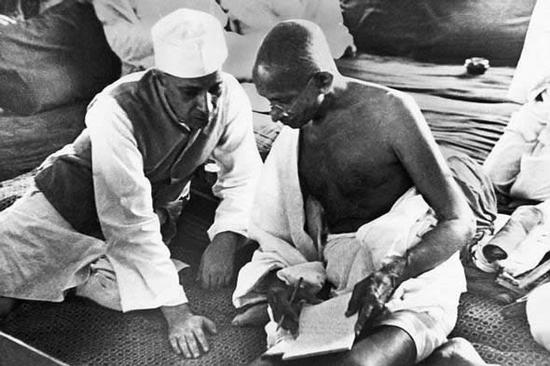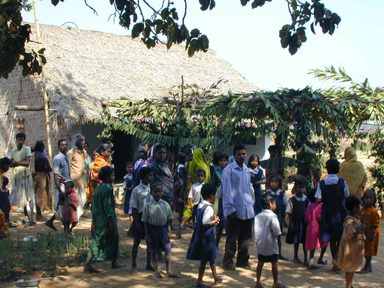
India shall always remain indebted to Gandhi and Nehru for their unique and substantial contributions.In my eyes it would be unfair to label them as “Asian Heroes” ,especially Gandhi , since ideas unleashed by them had an universal appeal ,which ignited other great minds to work for the cause of downtrodden in a similar fashion in their countries.However,it wouldn’t be unfair to suggest that modern India has deviated from the perspective of Gandhi with priorities taking an ugly shape,wherein even ‘Gandhigiri’ is being perceived as a last straw to set things in right order.
I don’t know how to reckon with his idea of village socialism in globalized India which sought” decentralization of production and regional self-sufficiency “.One glance at the wretched conditions of farmers is enough to suggest that following Gandhism ideals would have yielded better results than toeing the Western perceptions aimed at materialistic achievements.The waves of globalization have shattered the living patterns prevalent in the villages.The villages have become dependent on cities since they are more or less following the happenings in cities.The rural population finds it more profitable to work in Delhi ,Mumbai and Surat than working in the village.This rush to compete with cities has come at the inherent features of village.Let’s see what Gandhi said about Swaraj enjoyed by Indian villages.
“My idea of Village Swaraj is that it is a complete republic, independent of its neighbors for its wants, and yet interdependent for many others in which dependence is a necessity. Thus every village’s first concern will be to grow its own food crops and cotton for its cloth. It should have a reserve for its cattle, recreation and playground for adults and children. Then if there is more land available, it will grow useful money crops, thus excluding ganja, tobacco, opium and the like. The village will maintain a village theatre, school and public hall. It will have its own waterworks ensuring clean supply. This can be done through controlled wells and tanks. Education will be compulsory up to the final basic course. As far as possible every activity will be conducted on the co-operative basis. There will be no castes such as we have today with their graded Untouchability. Non-violence with its technique of Satyagraha and non-co-operation will be the sanction of the village community. There will be a compulsory service of village guards who will be selected by rotation from the register maintained by the village. The government of the village will be conducted by the Panchayat of five persons, annually elected by the adult villagers, male and female, possessing minimum prescribed qualifications. These will have all the authority and jurisdiction required. Since there will be no system of punishments in the accepted sense, this Panchayat will be the legislature, judiciary and executive combined to operate for its year of office. Any village can become such a republic today without much interference, even from the present Government whose sole effective connection with the villages is the exaction of the village revenue. I have not examined here the question of relations with the neighboring villages and the center if any. My purpose is to present an outline of village government. Here there is perfect democracy based upon individual freedom. The individual is the architect of his own government. The law of non-violence rules him and his government. He and his village are able to defy the might of a world. For the law governing every villager is that he will suffer death in the defence of his and his village’s honour.”

Even Nehru’s policies intended at development of the poorest people.However,his cherished desires failed to produce real results because of ” state planning, controls and regulations” that resulted in “impairment of productivity, quality and profitability.”
“India’s leaders—especially the first prime minister, Jawaharlal Nehru, who introduced the five-year plans — agreed that strong economic growth and measures to increase incomes and consumption among the poorest groups were necessary goals for the new nation. Giving utmost importance to the economy, Nehru appointed R. K. Shanmukham Chetty, a person who did not participate in the mainstream Indian Independence Movement as the finance minister, since he believed that more than ideology, having the right person in the right job was important.”
Anyway,it’s never too late to make way for lofty perceptions in one’s life ,to intercept the aura of past leaders in an ideal way. Do we have guts to appoint the right person in the right job? Any answer ?
***********************
References : http://en.wikipedia.org/wiki/Economic_history_of_India
http://www.gandhi-manibhavan.org/gandhiphilosophy/philosophy_village_idealvillage.htm



